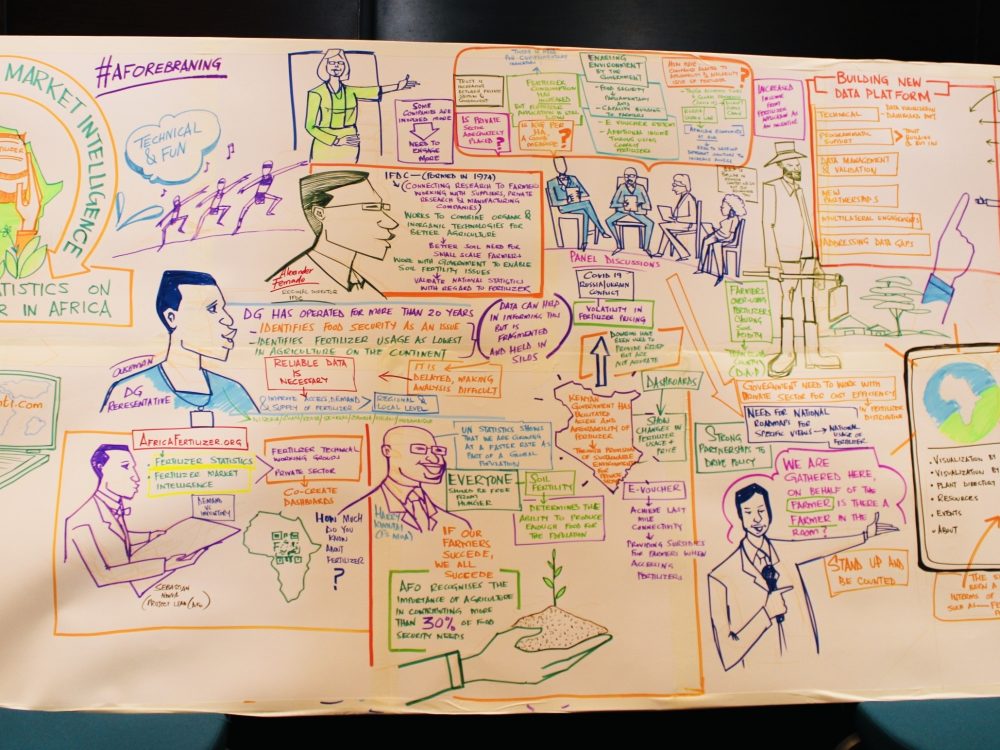How Can We Make Open Data Meaningful to Citizens?
I am Owen Scott and recently I was fortunate enough to have the opportunity to attend the Engineers Without Borders Canada (EWB Canada) National Conference in Calgary. EWB Canada – no affiliation with EWB USA – is a progressive development organization focused on creating transformative change in African markets, public sectors, and civil society through supporting a continuously evolving portfolio of innovative ideas and ventures.
Among other things, EWB Canada is well-known here in DC for having published a failure report every year since 2008. The EWB Canada conference is the largest annual international development conference in Canada, and attracts prominent speakers from all over the world.
By far the highlight of the conference was the full day Policy Forum, already blogged about here by Linda Raftree. The forum brought together participants from Canadian government, African governments, and non-governmental organizations to talk about open data and open government.
It sounds clichéd, but the diverse set of stakeholders made for a particularly interesting discussion – it’s not every day that you hear district government officials from Ghana talking about open data with municipal government staff from Edmonton!
Large Scale Open Data is Already Meaningful
Large scale open data, in the sense typically discussed in Washington, DC, has a very important role to play in the future of international development cooperation. As a past employee of EWB Canada, I was definitely proud to see Aleem Walji, the Director of the World Bank Institute’s Innovation Labs, receive a positive reception from over 850 of my former colleagues during a conference keynote in which he mentioned both the World Bank Mapping for Results Initiative and the Open Aid Partnership – initiatives where Development Gateway is playing a key role.
These initiatives represent key pieces of the international development sector’s open data infrastructure, with a wide range of potential stakeholders, and have high innate value for improving aid effectiveness.
How Can Open Data Be Meaningful to Citizens?
A major takeaway from the discussion, though in retrospect it should perhaps be obvious, is that open data means different things to different people. While in the West we tend to think of open data as big data – comprehensive information published in a standard formats and accessible via APIs – ultimately, creating meaningful open data means finding ways to make important information accessible to the people who can best use it, in formats that are easy to engage with.
Again and again during the discussion, the participants from African governments stressed the importance of finding relatively low tech solutions for communicating open information to citizens, with radio being a clear technology of choice.
This perspective resonates very closely with my own experience in Southern Africa, which included several extended stretches spent living in rural communities. Something like the Kenya Open Data Portal, impressive and useful though it is, is unlikely to be immediately relevant for citizens in a rural village in Malawi, even if they could access it easily.
But get on the radio and announce how many fertilizer subsidy coupons will be allocated to each village during the next growing season, as well as the name of the village official who will be in charge of their distribution, and watch how quickly “open data” becomes a key part of the daily lives of citizens. The broad concept of open data thus translates nicely across different formats and approaches, with relevance to stakeholders determined at the intersection of specific implementation approaches and implementation contexts.
We Need Diverse Open Data Interpretations
I do not consider “big data” to be at all in tension with simpler approaches for engaging citizens in rural Africa – relevance is at the intersection of approach and context. With the interwoven web of contexts intrinsic to international development work comes an equally diverse set of potentially high-impact ways to leveraging open data.
The world needs a diverse ecosystem of open data and open government solutions to meet the needs of international development’s many stakeholders. With Development Gateway I am proud to be part of helping to develop and implement these solutions, and appreciate events like the EWB Policy Forum for giving me the opportunity to get multiple perspectives on how to make Development Gateway’s work relevant to as many stakeholders as possible. This is a very exciting time to be working at the intersection of open data and international development.
Share This Post
Related from our library

Building a Sustainable Cashew Sector in West Africa Through Data and Collaboration
Cashew-IN project came to an end in August 2024 after four years of working with government agencies, producers, traders, processors, and development partners in the five implementing countries to co-create an online tool aimed to inform, support, promote, and strengthen Africa’s cashew industry. This blog outlines some of the key project highlights, including some of the challenges we faced, lessons learned, success stories, and identified opportunities for a more competitive cashew sector in West Africa.

Digital Transformation for Public Value: Development Gateway’s Insights from Agriculture & Open Contracting
In today’s fast-evolving world, governments and public organizations are under more pressure than ever before to deliver efficient, transparent services that align with public expectations. In this blog, we delve into the key concepts behind digital transformation and how it can enhance public value by promoting transparency, informing policy, and supporting evidence-based decision-making.

From Data Gaps to Impact: Key Insights from the VIFAA Program
Over the last six years, DG, together with its partners AfricaFertilizer (AFO) and Wallace & Associates, collaborated to implement the Visualizing Insights on Fertilizer for African Agriculture (VIFAA) Program. In the program’s final year (2024), the team undertook a “program learning process” to reflect on outcomes, challenges, and successes through internal interviews. This blog captures five key learnings, which we hope will guide similar programs aiming to bridge data gaps in agricultural development.